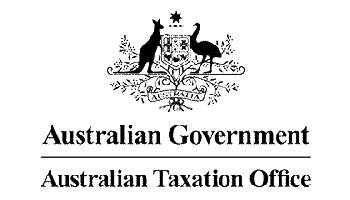Flinders New Venture Institute and Flinders Careers and Employability
bring you a suite of business resources to help you navigate
self-employment opportunities while studying at university.
Starting a business
Explore this detailed, step-by-step guide on how to set up your business by the Australian Government.



Creating an ABN
The Australian Taxation Office (ATO) provides all the information you need to know on how to register for an Australian Business Number (ABN).


Flinders Careers
Access a range of free services and programs to:
- Plan your career
- Broaden your skills and experience
- Connect with employers and industry professionals
- Find job opportunities
- Prepare for employment
- Receive on-campus specialist employment support if you have a disability. More information is available in the USEP flyer.
Key topics
Australian Business Number (ABN)
An Australian Business Number (ABN) is a unique number that identifies your business to other businesses and to the Australian Government for reporting requirements. It allows you to register for GST. Click here for more information.
Australian Company Number (ACN)
An Australian Company Number (ACN) is issued to companies registered in Australia, and must be displayed on all official public facing company documents. Your taxation professional will assist you with registering and other obligations attached to an ACN. Please click here for more information.
Australian Consumer Law
It is important to understand the rights that customers have when purchasing your products. To understand more about these requirements visit the Australian Competition & Consumer Commission.
Accounting and accounting mechanisms and structures
Business structures
Sole Trader is the simplest way to trade. You have full control over your business decisions. It is a low-cost structure and also allows you to trade with an ABN or your own TFN. It is important to understand that you bear responsibility for all aspects of the business, including debts that you accrue on behalf of the business. The tax implications are important to be across, and we encourage you to seek taxation advice from a Tax agent relevant to you.
Partnership is made up of two or more persons that trade and distribute the income (and losses) amongst yourselves. You can operate as a General Partnership, Limited Partnership, or Incorporated Limited Partnership. Relatively inexpensive to set up, you share control and management of the business. You bear responsibility for all aspects of the business, including debts that are accrued on behalf of the partnership. Tax implications are important to be across, and we encourage independent taxation advice, alongside Partnership Laws relevant to each state or territory. Please see South Australia Partnership Act 1891.
Company operates as its own entity and can buy, sell, sue and be sued and will have its own TFN, ABN and can apply for an ACN. As a director of a company, you are held accountable for legal obligations of the company, and the unpaid amounts of shares issued. More complex and expensive; companies are a great vehicle for high-growth companies or for variability or diversification in trade. Tax and financial obligations are important to be across, and we encourage independent advice from a professional. All companies must comply with and be registered with Australia’s corporate, markets, financial services, and consumer regulator Australian Securities Investments Commission (ASIC).
Trusts can be for a person or company, and the trust structure holds the business for the benefit of others (beneficiaries). The trustee decides how business profits should be distributed to the beneficiaries. A trust will have a TFN and needs to report to the ATO. Trusts are complex to set up. There needs to be clear benefit for a set up and it is recommended to see a licensed professional. ATO have information on ‘Trusts’ to help you understand more.
Cash flow
Finance and funding (equity or debt)
Finance and funding (equity or debt) are ways to raise capital for your business. If you are short on funds to assist the purchase of new equipment or simply to trade, funding instruments are valuable to help you in lean times. Your assets and trading position may determine which funding you can access.
- Debt funding is typically business loans, lines of credit, overdrafts, equipment leases, invoice and asset financing and may require collateral (assets) to be offered to secure the debt. Unsecured finance attracts higher interest rates. Some suppliers offer trade credits and terms will vary. Collateral can include debtors.
- Equity funding can be from a variety of sources:
- Self-funding involves your own money or business revenue (bootstrapping)
- Angel investment from family and friends and will take a share of your business
- Private Investment will require a share in your profits and equity and will often be industry specific whereby the investor angels will only invest in certain businesses or industries
- Venture Capitalists are large organisations that invest significant into young businesses (start-ups) that are early stage
- Initial Public Offerings (IPOs) are stock exchange floats that are public offerings to raise specific amounts for specific outputs. They are complex and for more mature start-ups that have developed into high-growth companies.
- Grant monies can be available for specific periods and are supported by various Government departments. They are often used for business expansion, research and development or innovations.
Business.gov have a useful Grants & Programs finder. - Crowdfunding is a new way of financing via crowdfunding platforms. There are four streams of crowdfunding and each offer diverse ways to attract funds and have different tax responsibilities.
- Donations from funders without any return to donors
- Rewards-based for goods, services or discounts of the product
- Equity (or crowd-sourced funding) for smaller companies for up to $10,000/year and funders receive shares in your company
- Debt based where the donor lends you money in a same way as a loan operates
Distribution
How you get your product or services to your clients is important but often overlooked at the start of a business. Without this, your customers can’t receive what they need. Thinking about how you can distribute and get your products and services in the hands of customers is important, since without careful consideration, it may cost you more for shipping fees, unnecessary travel, or higher overall costs. Could you set up a website where people can download your program after making a purchase? Can you set up a business account for cheaper shipping? What are the rules and how can we get our products into the hands of our customers in the most convenient, quickest, and cheapest way possible?
Intellectual Property
Intellectual Property (IP) can protect the uniqueness of your product, business operations, and processes. Navigating IP related issues can be complex and we recommend you seek advice from an IP expert.
Types of IP rights:
- Patents to protect novel inventions or procedures
- Trademarks are for protecting logos, colors, works or styling that is unique and easily identifiable to you
- Copyright is important for creative industries – authors, artists and computer programmers
- Registered designs are similar to trademarks but protect the visual design of a product
- Circuit layout rights are to protect computer generated layout designs
- Plant breeding rights protect commercial income from new plants developed
Investment strategy
Leadership and succession planning
Management
Good business management enables your business to run smoothly without too much troubles. It can be difficult to know how to manage your business and we recommend speaking to our experts to find out how you can set your business up to run well.
Marketing
Marketing enables you to engage new customers and be found by those looking for products or services you offer. There are many marketing strategies that you can leverage to “funnel” or bring people in from multiple “channels” or pathways to engage with you. This can include advertisement, print-media, social media, word-of-mouth, etc.
Social Media is a fantastic way to attract new customers and for others to find out about your business. There are many strategies you can use to leverage the power of social media, including creating content, advertising, leveraging followers and influencers, and funnelling customers to a landing page.
Creating a Landing Page enables you to funnel traffic from multiple sources into a single page where people can interact and connect with you. Landing pages could be a simple one-page website with contact information, and you can leverage advertisement and social media to attract people to your page to engage with you. There are many free and paid ways you can create a simple landing page or full-e-commerce sites to sell goods such as Wix, Squarespace, WordPress, and Shopify.
Creating content is key in attracting new clients and business. It’s also a good way to highlight your services, impact and your reason why you are in business, your purpose, and motivation. Good content enables customers to understand quickly what you are trying to sell and to see if your products and services are the right solution for them. Content can include logos, branding, products, videos, social media posts, fliers, or advertisement that you can use to promote your business.
Occupational Health & Safety
It is important to understand what requirements your business needs to follow in order to operate safely. To understand more about what these requirements are visit Safe Work SA.
Recruitment
Regulation
It is important to find out and learn about the different regulations that may affect your business or industry. These could include Taxation and Bookkeeping requirements, Australian Consumer Laws, Product or Service insurances, Product Labelling, Contracts, Privacy laws, Imports/Exports, etc. For further information visit this page.
Risk analysis
Understanding risk plays a key part in creating a strong and sustainable business. Risks can come in many forms from physical risks, financial, branding and product risk. It is important when making decisions to understand what potential risks can be, create ways to mitigate potential risks, and develop strategies when things don’t turn out well. There are many ways that you can implement your own risk analysis such as Risk Assessment templates, SWOT analysis, financial planning, and business model analysis.
Sales and customer support
There are many ways to get customers to buy your products or services. This can include online purchases through your website, physical purchases (eg. at a store or office), after-sales support, etc. It is important to think about how your customers buy things from you and to make the process as easy and painless as possible. Recall the last time you purchased something. How easy it was for you to do and imagine what would happen if something stopped you from buying or if part of the process became too inconvenient to go through with the purchase?
Good customer support and service also plays a key part in keeping existing customers happy and wanting to come back for more. It is important to consider how you can add value to your customers while they shop.
Strategy
Taxation
- Company tax is set by the Federal Government and can vary according to industry or business structure
- Capital Gains Tax (CGT) applies on the capital gains made through disposal of assets and is paid as income tax
- Goods and Services Tax (GST) is set by the Federal Government and is a broad-based consumer tax on most goods and services traded. Exclusions on primary products apply. For more information see ATO.
- Payroll Tax is paid on your employees’ wages paid. Calculated monthly and paid if the threshold is exceeded. For more information see ATO.

GET IN TOUCH
Do you have a business related question? Send us a message and we’ll be in touch.

SUBSCRIBE
Receive our monthly newsletter with events and opportunities.


 nvi@flinders.edu.au
nvi@flinders.edu.au Level 2, 1284 South Road Flinders at Tonsley SA 5042
Level 2, 1284 South Road Flinders at Tonsley SA 5042